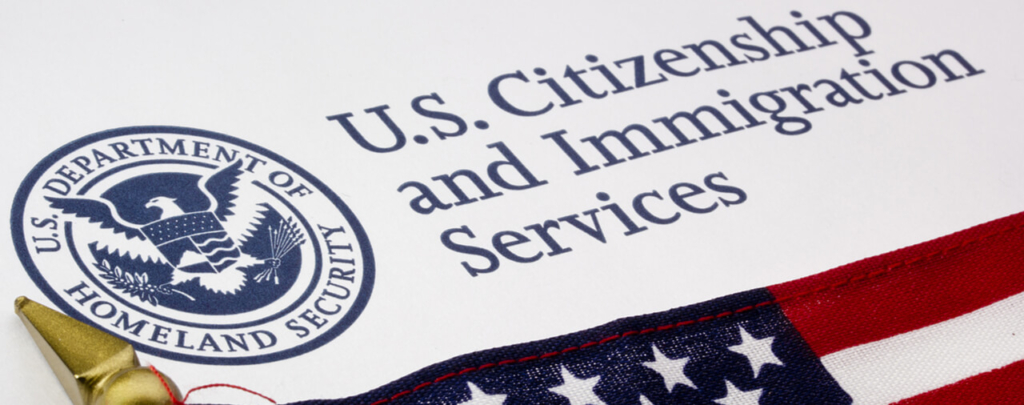A foreign national may establish eligibility for asylum or withholding of removal by establishing a well-founded fear of persecution on account of one of five protected grounds. One of these five grounds is “membership in a particular social group.” The Board of Immigration Appeals first formally recognized particular social groups based in part on sexual orientation in Matter of Toboso-Alfonso, 20 I&N Dec. 819 (BIA 1994) [PDF version]. However, the Board in Toboso-Alfonso did not recognize groups based on homosexual orientation per se, but rather groups based on “having the status of being a homosexual.” Id. at 822. At the time Toboso-Alfonso was published, the Supreme Court had held that same-sex sodomy laws were valid (Bowers v. Hardwick, 478 U.S. 186 (1986)), a position it subsequently reversed (Lawrence v. Texas, 539 U.S. 558 (2003)). The Board left unresolved whether harm stemming from engaging in homosexual acts could support an asylum claim.
Prior to 2023, the Board never explicitly modified Matter of Toboso-Alfonso. It cited to the concept of a group based on having the status of being homosexual in one decision. Matter of C-A-, 23 I&N Dec. 951, 955 (BIA 2006) [PDF version]. In 2014, the Board implicitly modified Matter of Toboso-Alfonso in describing it as having recognized “homosexuals in Cuba” as a particular social group, but this language was ancillary to the central holding of the two decisions in which it appeared. Matter of W-G-R-, 26 I&N Dec. 208, 217 (BIA 2014) [PDF version]; Matter of M-E-V-G-, 26 I&N Dec. 208, 238-39 (BIA 2014) [PDF version]. A survey of circuit court decisions reveal that some circuit courts have issued precedent decisions recognizing homosexuals per se as a group in the manner described in the Board’s 2014 decisions.
The Board formally clarified Matter of Toboso-Alfonso in a 2023 precedent decision titled Matter of C-G-T-, 28 I&N Dec. 740 (BIA 2023) [PDF version]. In this case, the Board was reviewing an immigration judge decision wherein the judge had determined that the respondent was a member of his proposed particular social group of “homosexual Dominican males” but then found he did not establish a nexus between the harm he suffered and group membership. The Board made clear in its decision, which remanded the record to the immigration judge, that “when considering future harm, adjudicators should not expect a respondent to hide his or her sexual orientation if removed to his or her native country.” Id. at 745. That is, not withstanding ambiguity in Matter of Toboso-Alfonso, an adjudicator cannot rebut a homosexual applicant’s fear of persecution on account of sexual orientation by finding that he or she could avoid persecution by hiding his or her sexual orientation.
The Board addressed its clarification in a footnote. Id. at 746 n.7. In the footnote, the Board explained that Matter of Toboso-Alfonso had distinguished between having the status of being homosexual and actually engaging in homosexual conduct in terms of particular social groups. In supporting its new finding that an applicant cannot be required to show that he or she could not avoid persecution by hiding his or her sexual orientation, the Board distinguished current law on homosexual acts post Lawrence from the laws in effect when the Board initially decided Matter of Toboso-Alfonso.
Matter of C-G-T- clarifies two points with respect to asylum claims grounded in fear of persecution based on sexual orientation. Firstly, it is the first time the Board has specifically addressed a particular social group based on actually being homosexual in a precedent decision (the 2014 decisions merely described Matter of Toboso-Alfonso). Secondly, it makes explicit that a person claiming a fear of persecution based on homosexuality cannot be required to show that he or she could not avoid persecution by not entering into homosexual relationships or engaging in homosexual activities.
While the Board’s clarifications are welcome in light of long-standing changes in law, they are unlikely to have a significant impact in most cases in light of the fact that many immigration judges and federal courts have already read Matter of Toboso-Alfonso as recognizing groups based on actual sexual orientation and there are many precedents establishing that one cannot be required to suppress his or her protected ground to avoid persecution. As the Board noted in Matter of C-G-T-, what ambiguity existed in Matter of Toboso-Alfonso derived from now superseded law.
In individual cases where actual or perceived sexual orientation forms the basis of a persecution claim, there is no bright line rule for whether the best group formulation is actual sexual orientation or a group based on perceived sexual orientation or having the status of a particular sexual orientation. There may be cases wherein the applicant is actually a sexual minority but a group along the lines of the group recognized in Matter of Toboso-Alfonso makes more sense than the group discussed in Matter of C-G-T-. The best way to frame a particular social group should turn on the facts of a particular case and the applicant’s past victimization or his or her fear of future harm.
As always, we recommend that foreign nationals who fear persecution consult with an experienced immigration attorney for case-specific guidance.



